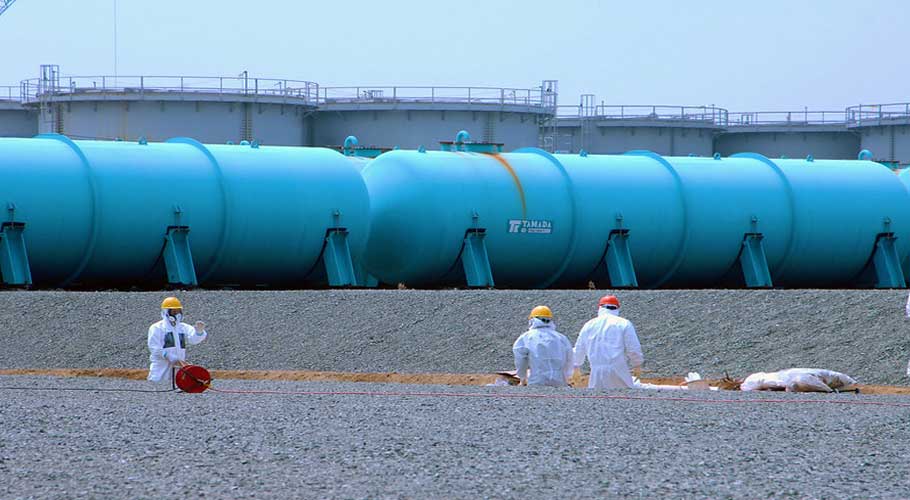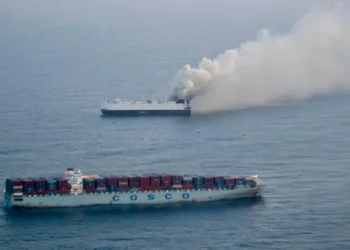(REUTERS): Japan will release more than 1 million tonnes of contaminated water from the destroyed Fukushima nuclear station into sea, the country’s government announced today (Tuesday), a decision that is likely to anger neighbouring countries.
According to the statement, the work to release the water will begin in about two years and the whole process is expected to take decades. “On the premise of strict compliance with regulatory standards, we select oceanic release,” it added.
Tokyo Electric Power, which operates the plant, will handle the process. The move, which came more than a decade after the nuclear disaster, will also deal another blow to the fishing industry in Fukushima, which has opposed the measure for years.
Japan’s prime minister, Yoshihide Suga, told a meeting that releasing the water into the Pacific Ocean was the “most realistic” option, and “unavoidable in order to achieve Fukushima’s recovery”.
The water, equivalent to about 500 Olympic-sized swimming pools, has been treated using an advanced liquid processing system to remove all contaminants below environmental levels and stored in tanks on the complex premises.
However, the processing system cannot remove tritium, the least radioactive, and least harmful, of all radioactive elements. The announcement drew swift condemnation from environmental groups. Neighbouring countries including South Korea, China and Taiwan have voiced opposition to the move.
Greenpeace Japan said it strongly condemned the water’s release, which “completely disregards the human rights and interests of the people in Fukushima, wider Japan and the Asia-Pacific region”.
Meanwhile, International Atomic Energy Agency supports the decision, since radioactive elements, except tritium, will be removed from the water or reduced to safe levels before it is discharged. The IAEA has also pointed out that nuclear plants around the world use a similar process to dispose of wastewater.


































